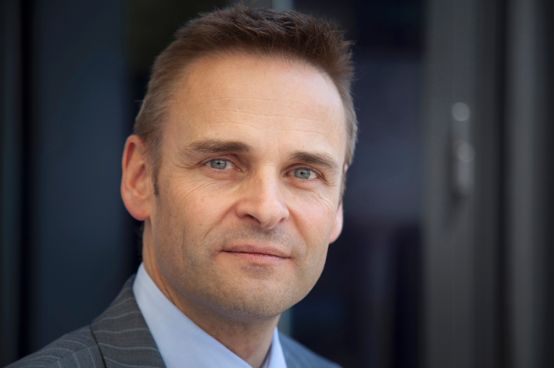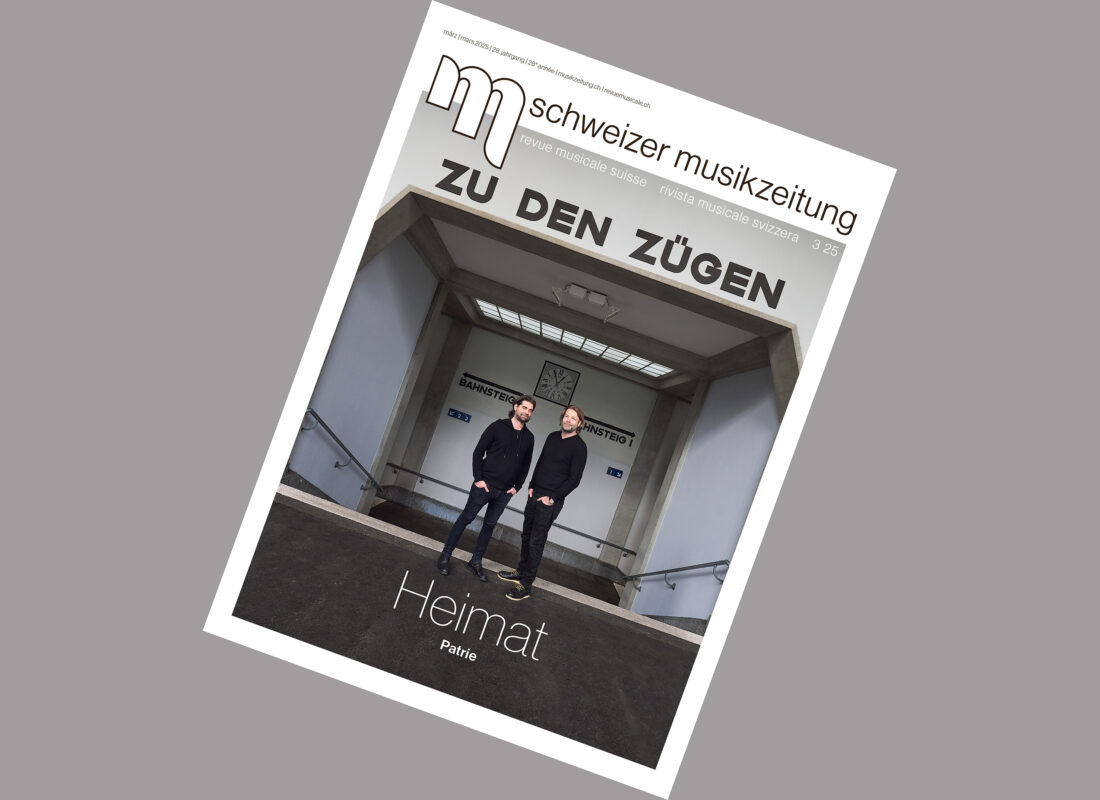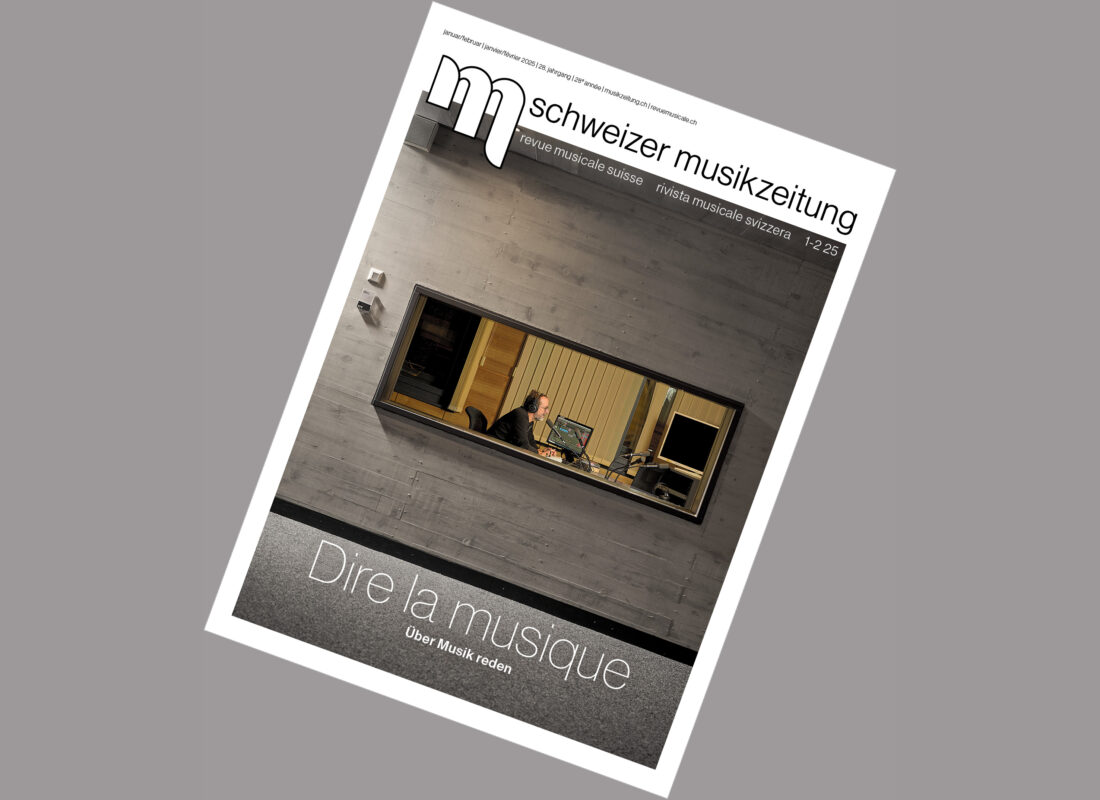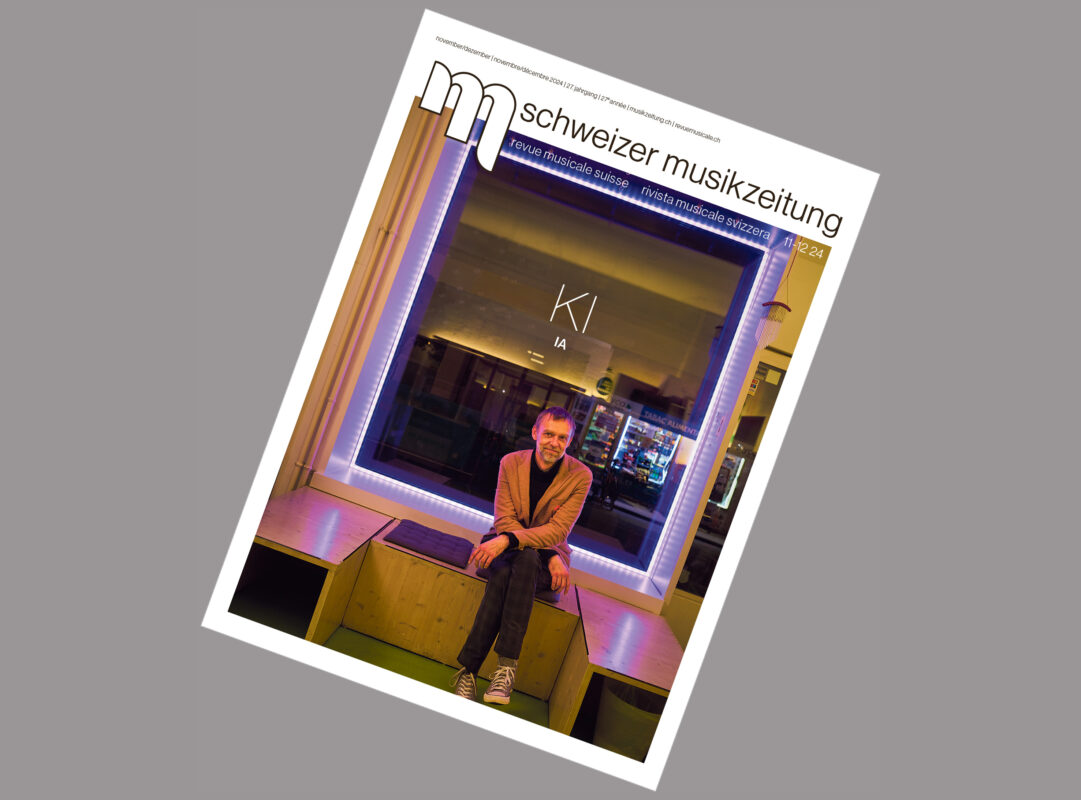Herculean task/Travaux d'Hercule
Andreas Wegelin, Director General of Suisa, the cooperative of authors and publishers of music, answers the Schweizer Musikzeitung's questions about Corona.

Andreas Wegelin, Director General of Suisa, the cooperative of authors and publishers of music, answers the questions of the Swiss Music Newspaper.
How are you and Suisa doing after this year?
The Suisa company - like musicians and event organizers - has had to accept a slump. It has drastically affected the live sector, i.e. where musicians play in front of an audience. We have seen a drop in sales of over 50 percent in this area. Unfortunately, things don't look any better for 2021 either; the ongoing lockdown leaves us without any positive prospects in this sector at the moment. Fortunately, Suisa not only licenses the live sector, but also represents authors in broadcasting rights, recordings, blank media remuneration and online use. These areas are less affected by the crisis. And it is now becoming clear how important it is to invest in the future of the online licensing business - in our case in our subsidiary Suisa Digital Licensing and in the service company Mint Digital Services. Income for our members in the online sector has increased by almost 40 percent. However, they are not yet at the level of license income from the CD boom.
Internally in the company, there is enough to do despite the discontinuation of events and the corresponding reduction in license processing. On the one hand, large events in particular were canceled in 2020, but small events with low turnover still had to be billed with just as much or even more effort. On the other hand, the crisis offers the opportunity to rethink processes and procedures and focus even more on online self-services. The aim is to give both members and customers automated and online access to Suisa's most important services.
The personal situation is stressful because it is unfamiliar and uncertain for the future. Overall, the crisis also brings with it a turning point in which you become more aware of which things are really important and which you can do without. For example, it is definitely an advantage that certain conversations can also take place via video and that you don't have to be constantly on the road for meetings with correspondingly grueling travel times.
What is particularly drastic for you about the Corona period?
I am particularly impressed by artists who are breaking new ground with their own creativity. Especially through contact with their audience electronically or, quite blatantly, the Ghost Festival, which took place at the end of February - exactly one year after the first restrictive measures (max. 1000 visitors from February 28, 2020). Or rather, it couldn't take place: a large-scale solidarity campaign with Swiss music bands, but also the technicians and organizers in the background. An impressive CHF 1.2 million was raised in this way through ghost ticket sales and distributed to the industry in need.
How do you think the corona period is changing the music profession?
Corona has shown that musicians - many of whom are freelancers or work in small businesses - need to make their living situation and their work better known. Fortunately, the Culture Taskforce has succeeded in making its voice heard in the federal government, parliament and administration so that the support measures for state-imposed shortfalls are also paid to cultural workers and cultural institutions. This strength and awareness of culture in society and politics must be further developed and consolidated. After the pandemic will not be like before the pandemic, which is precisely why this common voice of culture is particularly important. Many artists feel abandoned by politicians and not taken seriously. The Culture Taskforce and other artists' associations first had to raise awareness among many parliamentarians that making art is a profession - with real jobs and a value added of several billion francs. This awareness also needs to be raised further.
What question would you like to ask the Federal Council or what would you like them to do to revive the music scene?
Corona is dangerous. But it is also dangerous for the inhabitants of this country to have to do without culture, without music and to no longer be allowed to meet up for shared cultural experiences. There must be more differentiated options than simply closing all events with an audience. Shared cultural and musical experiences are a basic human need. So don't just leave shopping centers open under protective measures, but also smaller and medium-sized cultural events. In October 2019, Federal Councillor Alain Berset said in an interview with the WoZ (https://www.woz.ch/-a10e) said that "culture is absolutely undisputed in our country, as an important identity-forming element". When I look at the current situation for cultural workers, I would like to ask him: "Mr. Berset, if culture is undisputed and an identity-forming element, why isn't the Federal Council making a special effort to make culture accessible again?"








